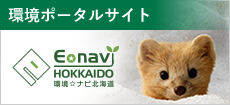JAPAN’S EFFORTS TOWARD ACHIEVING THE SDGS THROUGH PPAP, PUBLIC PRIVATE ACTION FOR PARTNERSHIP
1. FUNDAMENTAL IDEA
Prior to the formulation of the 2030 Agenda, Japan was already implementing measures in an integrated manner to build a sustainable society through environmental, economic and social improvements. Japan has also embarked on creating an inclusive and participatory society in which every individual can achieve his or her full potential. In line with this ideal, Japan has forged ahead by reforming its relevant systems. Also, Japan has set human security as the guiding principle that lies at the foundation of its foreign assistance and has placed issues such as health, disaster risk reduction and gender equality, which are listed in the SDGs as major challenges to be addressed, at the core of its international cooperation.Based on this experience, Japan played a leading role in the formulation of the 2030 Agenda, including the individual goals and targets.Japan aims to become a role model for the world in the implementation of measures to achieve the SDGs and will make efforts both in Japan and in cooperation with other countries to achieve sustainable societies worldwide where no one is left behind.
2. INSTITUTIONAL FRAMEWORK AND THE IMPLEMENTATION GUIDING PRINCIPLES
On May 20, 2016, the Government of Japan established a new Cabinet body called the “SDGs Promotion Headquarters”, headed by the Prime Minister and composed of all ministers. The SDGs Promotion Headquarters was established to foster close cooperation among relevant ministries and government agencies, and to lead the comprehensive and effective implementation of SDGs-related measures as a control tower.Under the SDGs Promotion Headquarters, we have held roundtable meetings on items related to the promotion and implementation of the 2030 Agenda, attended by representatives from a wide range of stakeholders, including NGO/NPOs, academia, the private sector and international organizations. So far, roundtable meetings have been held in September and November, 2016, and we have also conducted public comments. Through these processes, the government has widely sought the opinions of citizens and has held dialogues with a range of stakeholders. Based on these discussions, at the second meeting of the SDGs Promotions Headquarters held in December 2016, we adopted the SDGs Implementation Guiding Principles, which represent Japan’s national strategy to address the major challenges for the implementation of the 2030 Agenda.In the Guiding Principles, Japan established the following vision: “Become a leader toward a future where economic, social and environmental improvements are attained in an integrated, sustainable and resilient manner while leaving no one behind.” Besides the vision, the document includes five implementation principles and an approach to the follow-up and review processes. By restructuring the SDGs in light of Japan’s national context, it has identified eight priority areas among the goals and targets of the SDGs on which Japan should focus:
- Empowerment of All People (related SDGs: 1, 4, 5, 8, 10, 12)
- Achievement of Good Health and Longevity (related SDG: 3)
- Creating Growth Markets, Revitalization of Rural Areas, and Promoting Science Technology and Innovation (related SDGs: 2, 8, 9, 11)
- Sustainable and Resilient Land Use, Promoting Quality Infrastructure (related SDGs: 2, 6, 9, 11)
- Energy Conservation, Renewable Energy, Climate Change Countermeasures, and Sound Material-Cycle Society (related SDGs: 7, 12, 13)
- Conservation of Environment, including Biodiversity, Forests and the Oceans (related SDGs: 2, 3, 14, 15)
- Achieving Peaceful, Safe and Secure Societies (related SDG: 16)
- Strengthening the Means and Frameworks for the Implementation of the SDGs (related SDG: 17)
In the Annex to the Guiding Principles, 140 specific measures to be implemented both at home and abroad are listed together with indicators.
3.STAKEHOLDER ENGAGEMENT
The Government of Japan attaches great importance to implementing measures for the 2030 Agenda, monitoring progress, and conducting follow-up and review activities across agency boundaries and through public-private partnerships; in other words, through Public Private Action for Partnership (PPAP), in order to achieve the SDGs. It will do this in cooperation with a wide range of stakeholders, including local governments, NGOs/NPOs, academia, the private sector, international organizations and other entities, parliamentarians, scientists and cooperatives. It was to this end that the Government of Japan established the SDGs Promotion Roundtable Meetings, mentioned above, comprising a wide range of stakeholders. The roundtable meetings were held to draft the SDGs Implementation Guiding Principles as well as in preparation for the voluntary national review.Also, a variety of efforts by other stakeholders, such as NPOs and NGOs, private companies, local governments, science community and parliamentarians at home and overseas, to promote the SDGs have started to spread. In order to further encourage the private sector to work on the SDGs, the SDGs Promotion Headquarters decided to create the “Japan SDGs Award,” which will be presented to leading initiatives by private companies and organizations during its meeting in June 2017.On the other hand, public awareness of the SDGs is not yet sufficient. In order to promote SDGs-related measures as a national movement, it is critical to promote the understanding of every single Japanese person about the SDGs. To this end, under the leadership of SDGs Promotion Headquarters, Japan will work hard on raising public awareness through communication campaigns in collaboration with all the stakeholders.Furthermore, in order to nurture in children, who will lead society in 2030 and beyond, the competencies to be the future creators of sustainable societies and leaders of world, we are promoting Education for Sustainable Development (ESD), as well as encouraging learning about SDGs in all settings, including schools, households, workplaces and local communities.
引用 https://sustainabledevelopment.un.org/index.php?page=view&type=30022&nr=420&menu=3170


